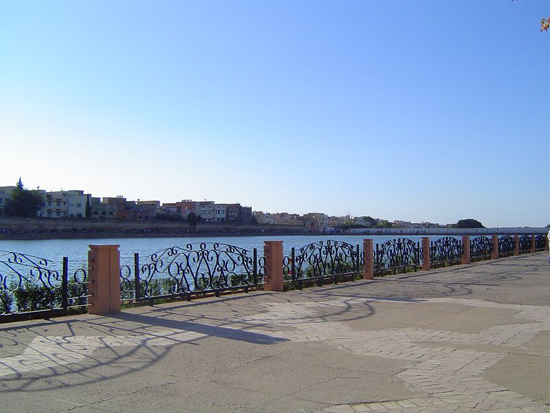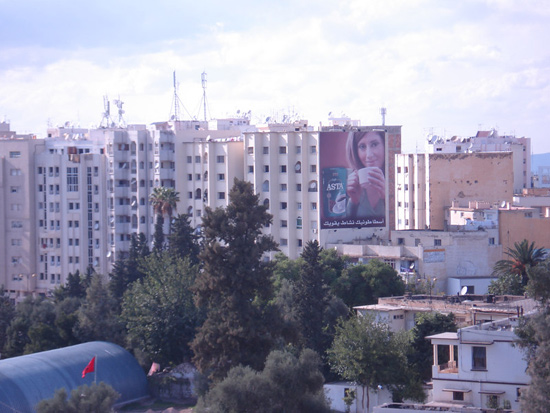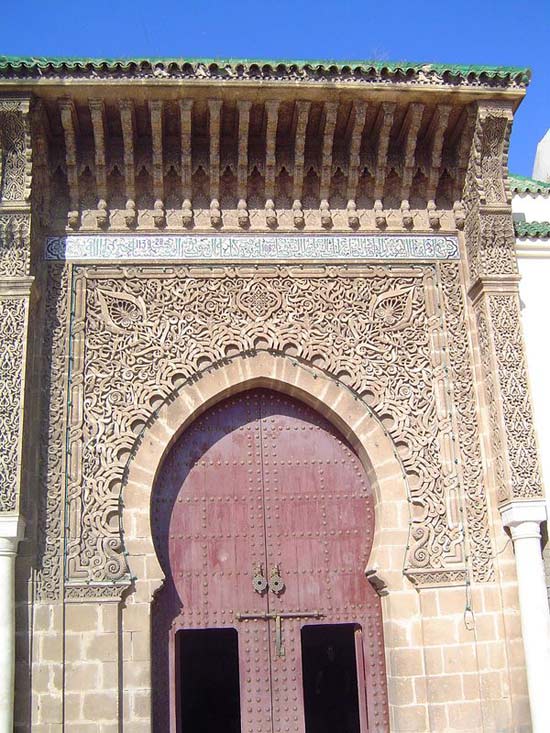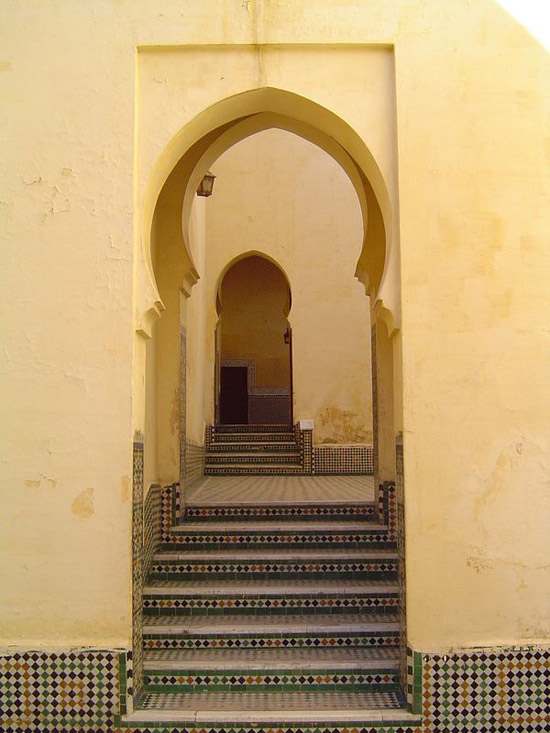
As I get ready for work, I finger a row of books on the shelf, tickling the spines of favorite titles, like John Updike’s Brazil and Mikhail Bulgakov’s The Master and Margarita, until I reach a tiny volume. My fingers rest upon the broken and bent spine of Allan Hibbard’s Paul Bowles, Magic, and Morocco, and I’m transported to the day when I stumbled upon it in a bookstore, lead to it by kismet, in search of some biography, some nonfiction work I never found. Then I remember the days I spent reading it, shaded by an orange tree in the hot Meknassi sun four Augusts ago. I remember those first days more clearly than any that succeeded them: sitting coyly at one of the two outdoor tables at Coin de Feu, attempting to flirt with the waiter, watching Japanese tourists — who always seemed to find this tucked-away treasure of a café — from behind my sunglasses, and sipping on mint teas and cappuccinos. The café was surrounded by flourishing orange trees, and occasionally, an orange would fall to the ground with a thud, only to be picked up or kicked like a soccer ball by a passing child. I would watch the child as curiously as he watched me, my sunglasses the only thing preventing a full-on staring contest.
Though that time four years ago wasn’t my first time in Meknes, Morocco, it was my first time there alone, having just moved my life across the ocean in one giant suitcase and a hiking pack. I remember the smells of that first summer and fall, my solo trip to Chefchaouen, where I was harassed — not because of my gender, but because of a presumption that I wanted to buy some hash — and got food poisoning on the eve of Ramadan. I remember the scent of the crisp air and how I didn’t want to leave the small town, in all its isolated beauty. I remember shopping for a night table on a very hot October afternoon, the smell of its Atlas cedar mixing with diesel and sewage as we rode the truck back to my apartment. I was so proud to have navigated the furniture souk by myself and bargained the price of that handmade cedar table down to the equivalent of $25.
But no memories of my two years in Meknes are as clear as that first August four years ago. On my first day, I bought some potatoes, some fruit, two Casablanca beers, milk, butter, cereal, and a pack of Marlboro Lights. I attempted to make mashed potatoes for dinner, failed miserably, and cried a little while I smoked a cigarette in my kitchen. Then, realizing the sheer madness of crying over potatoes, I hoisted myself up onto the kitchen counter, looked out the window toward the sky, and all of a sudden it hit me — where I was, what I was doing, and the fact that I’d be doing it for at least another year. I smiled, suddenly feeling freer than I ever had before. I took photos that first night, of the sunset, of myself sitting on the floor against my futon, walls bare, suitcase not yet unpacked.

I was barely twenty-three and still amazed by everything around me. I hadn’t yet experienced the frustration of Morocco. I hadn’t yet been pinned up against a truck on my way home from work at night, saved only by my trusty neighborhood car guardian, the eyes and ears of my block. I hadn’t yet had gut-wrenching food poisoning, or the giardiasis that hit two months later, wrecking my insides and knocking 30 pounds off my already lithe frame. I hadn’t begun to feel cheated or ripped off for my foreignness, despite earning a local salary. I didn’t, at that point, feel the pain of leaving things behind.
The week before I left Meknes is a blur. Packing, 100-degree summer heat, and tears — everything happened so quickly, and I was ready to just get the hell out that I don’t think I took the time to savor everything I loved. I was tied down by obligatory good-bye lunches and teas during those last few days, so I didn’t have time to walk the 1,000 or so paces down my favorite street and back. I didn’t get to walk up Rue des FAR, down Ave. Mohammed VI, past the conservatory, where I’d strain my ears for sounds of the violin, then up Rue de Paris, where I’d buy a marrakshia and an espresso and sit amongst lecherous men watching football, hiding behind my sunglasses as I’d learned to do in that first week. I’d sit for hours in the same café, watching teenagers strut up and down the tiny, almost provincial, pedestrian lane, the girls dressed up for each other and the boys doused in cologne, and wonder what I would have been like had I come of age there.

And yet certain vistas in my mind remain distinct; everyday places were now poignant memories to record vigilantly in case I never saw them again. Or perhaps in case things had changed so much that by the time I ever made it back, they’d be unrecognizable.
I remember my beloved Rue de Paris. When I first walked it in 2004, it seemed almost decrepit, but when I left three years later, the storefronts were filling with chic new local additions: Marwa, the clothing store where I bought my favorite fingerless gloves; Novelty, a piano bar, which was only novel to me because it was the only bar I could sit alone unharassed and where one could find draught beer. I miss the uneven sidewalks, the wilted potted plants, the ubiquitous cats. I miss the shouts of teenagers, the smell of apple shisha wafting past my nose, the homeless men on the corner, always grateful for even a penny.
I always knew I’d miss Marrakesh, and on some nights, I swear I can hear the adhan of Fez. But Meknes, ya Meknes, most of all, I miss you.

Glossary:
Souk: The marketplace in a traditional Arab city.
Car guardian: A man whose job it is to watch over the cars on a portion of street, help people park, and generally watch out for the neighborhood.
Marrakshia: A sticky sweet Moroccan pastry common to the city of Meknes.
Adhan: The Muslim call to prayer.
- Follow us on Twitter: @inthefray
- Comment on stories or like us on Facebook
- Subscribe to our free email newsletter
- Send us your writing, photography, or artwork
- Republish our Creative Commons-licensed content

